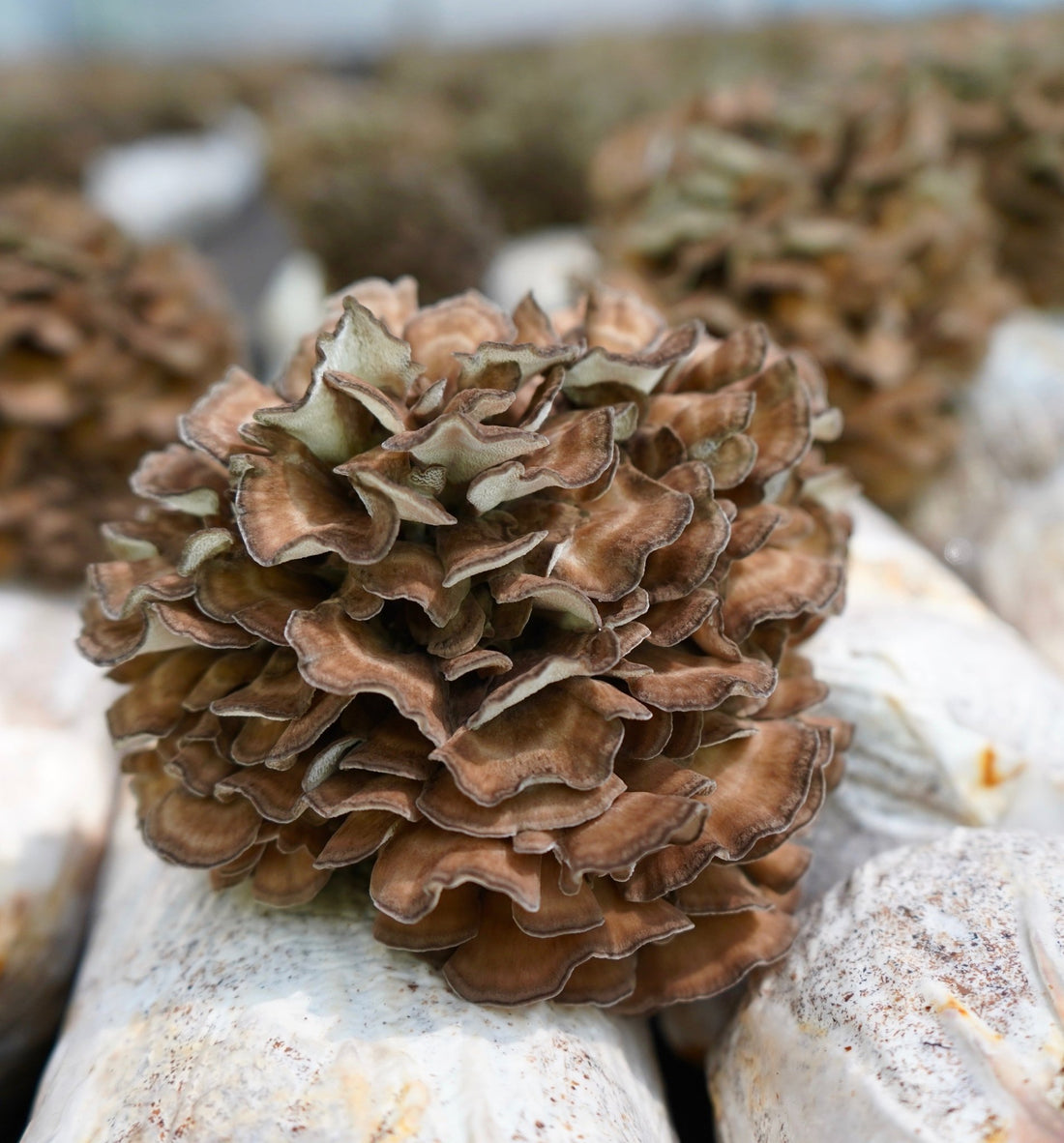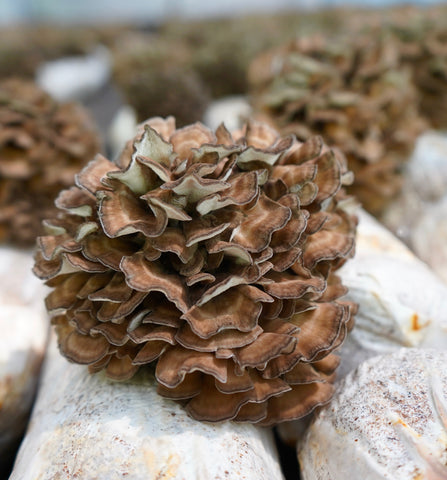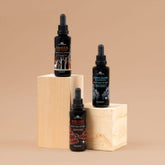
What is Maitake (Grifola frondosa)? - All About The Incredible Dancing Mushroom

Maitake comes from the combination of two Japanese words - Mai (meaning dance) and Take (meaning mushroom). This may be a description of the fruiting bodies and how they overlap and appear to be in rhythm with one another. It’s also referred to as “Hen of the woods”, perhaps both for its appearance and its poultry-like characteristics when eaten. There is rich lore depicting times in Feudal Japan where Maitake was worth its weight in silver. The distinct locations where Maitake was prevalent were treated as fiercely guarded secrets, often passed down through generations.
Maitake has traditionally been coveted for culinary reasons - both its taste and texture are excellent. However only more recently has its nutritional merit been discovered in a more scientific way.
Certain polysaccharides like beta-glucans may be referred to as biological response modifiers, or even more loosely, adaptogens. These plant compounds work in stride with the body’s natural cellular defense systems to boost the immune system and fight cancers and tumor growth.
Maitake compounds don’t appear kill cancer or tumor cells directly, but they bolster the cellular systems which do. They also seemed to protect healthy cells from becoming cancerous by suppressing the systems which foster cancer growth (1).
These properties could make medicinal mushrooms an excellent complement to the traditional Western approaches to fighting cancer. Maitake extracts may work in conjunction with chemotherapy to preserve cellular integrity and reduce the damage it causes to healthy cells.
A very recent rodent study showed that the antioxidant capacity of polysaccharides in Maitake actually improved the rats’ brains (2). After supplementing with Maitake for 8 weeks, these older rats showed significant memory improvement on a standard test called the Morris Water Maze test. The study mentions superoxide dismutase, a powerful antioxidant enzyme, citing that its increase (among other antioxidants present in the mushroom) was consistent with the rats’ improved performance. This is exciting because it draws the conclusion that there may be real neuroprotective and brain-enhancing benefits to supplementing with Maitake.
1. Masuda Y, Inoue H, Ohta H, Miyake A, Konishi M, Nanba H.”Oral administration of soluble β-glucans extracted from Grifola frondosa induces systemic antitumor immune response and decreases immunosuppression in tumor-bearing mice”. Int J Cancer. 2013 Jul;133(1):108-19. doi: 10.1002/ijc.27999. Epub 2013 Feb 15. <https://www.ncbi.nlm.nih.gov/pubmed/23280601>
2. Chen Z, Tang Y, Liu A, Jin X, Zhu J, Lu X. “Oral administration of Grifola frondosa polysaccharides improves memory impairment in aged rats via antioxidant action”. Mol Nutr Food Res. 2017 Jul 28. doi: 10.1002/mnfr.201700313. <https://www.ncbi.nlm.nih.gov/pubmed/28752930>


